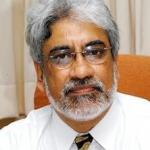Higher Technical Education in India at the Crossroads

Since 1947, when independence was achieved, India has been one of the few developing countries to invest extensively in both Science and Technical education. The results, though impressive in terms of quantity, have a mixed track record in terms of quality. As a result, specific initiatives to close this gap between India and the developed world in terms of quality are now needed.









